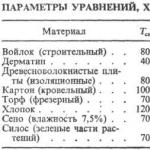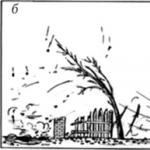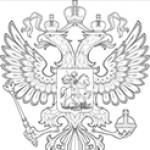The Enchanted Wanderer analyzes the work briefly. Analysis of the story of N. S.
The Enchanted Wanderer is one of the most famous works of the talented Russian writer Nikolai Semyonovich Leskov. The idea of the story arose from the author during a trip to Lake Ladoga to the island of Valaam, where monks live to this day. The first sketches were written by Leskov under the title "Chernozem Telemak" at the end of 1872. And in September 1873, some time after the author's return from the trip, the story was published in the newspaper "Russian World" under the title "The Enchanted Wanderer, His Life, Experiences, Opinions and Adventures." The work is part of Leskov's cycle of legends about the Russian righteous.
The analyzed work belongs to such a popular literary movement in the 19th century as critical realism. It is expressed in the author's desire to reliably depict all the difficulties of the life of an ordinary person, to describe the life of the Russian people without embellishment. Leskov pays more attention to the negative side, rather than the positive, in order to make the reader think about difficult things. "The Enchanted Wanderer" belongs to the genre of the story, as it draws a chain of episodes that make up the period of the life of the main character, and, unlike novels, has a single storyline. However, in this creation of N. Leskov, epic motives are also traced. The composition of the work is linear, but the logic of the narrative is based not on the chronology of events, but on the associations and memories of the narrator. The story consists of several closed episodes, it is noteworthy that the lives and adventure novels have the same structure. Elements of both genres appear in The Enchanted Wanderer, which was an innovation of N. Leskov at the end of the 19th century.
The writer's colorful language distinguishes his style from other Russian prose writers of that time. The author's colorful lines, full of vernacular, do not at all resemble the classical literary methods of Pushkin and Turgenev. Leskov wrote in the language in which the simple working people spoke: filled with all sorts of dialects, incorrect, harsh. And yet his texts do not seem at all illiterate or empty, on the contrary, they have a special charm that enriches the Russian language.
The story "The Enchanted Wanderer" has a single storyline that is inextricably linked with the image of the protagonist, Ivan Flyagin. For twenty chapters, into which the story is divided, the character goes through all kinds of trials, difficulties and temptations, grows spiritually. The result of all his adventures and hardships is going to a monastery, in which the hero found peace. Flyagin was cleansed of the sins of the past: the murder of a beloved woman and an innocent monk, even though these crimes were not committed out of villainous motives. It would seem that evil fate pursued the protagonist throughout his life: this corresponds to N. Leskov's idea to depict all the hardships of the life of an ordinary Russian person.
Ivan Flyagin is not perfect: in many of his actions, both recklessness and rudeness are read. Nevertheless, Leskov considers him to be among the righteous. Despite its negative sides, this controversial character has a high morality, piety, the ability to take someone else's sin upon himself - this is especially noticeable in the episode with the death of the gypsy girl Grushenka. The image of this heroine is also very interesting: using her example, Leskov was one of the first to talk about the powerlessness of women in Russia in the 19th century. The tragic fate of a fervently loving woman who prayed to be delivered from the sin of suicide cannot but evoke sympathy from readers.
It is difficult to estimate the number of problems raised by Leskov in his famous work. The story provides answers to many moral and ethical questions about kindness and love, reveals the national character of the Russian people, makes one think about the problem of finding happiness. It is not without reason that it is considered one of the pearls of Russian literature.
- "The Enchanted Wanderer", a summary of the chapters of Leskov's story
- "Lady Macbeth of the Mtsensk District", analysis of Leskov's story
- "The man on the clock", analysis of Leskov's story
The name "The Enchanted Wanderer" is so mysterious and polysemantic that it is rightfully considered one of the highest artistic achievements of the writer. You can judge this for yourself by the number of questions that this title poses to an attentive and competent reader.
First, how do you understand the word "enchanted": as an adjective or as a participle? In this case, this is not a pseudo-scientific linguistic casuistry, but a question, on the answer to which the understanding of meaning depends. If this is a passive past participle, then the "wanderer" is fascinated by someone or something. If this is an adjective, then we are fascinated by it.
Moreover, another question arises, in which of the meanings is this word used by the writer? Dictionaries give three meanings. But in an artistic context, new meanings of this word can also appear.
Think about this question, refer to the dictionaries, to the text of the story, but for now, for our conversation, we will accept three main versions of the meaning: 1) the wanderer is enchanted, in the sense of bewitched, bewitched by some kind of charm: 2) the wanderer is enchanted, in other words, admired by someone. then; 3) we, the readers, are delighted or fascinated by the wanderer, and perhaps the author too?
A. A. Gorelov: “Leskov saw the national hero at that turn of his life, when in the formerly naive and impulsive commoner the self-conscious will to historical action began to speak, led him through life. Then not only the external "charm", but already the "charm" of some internal self-restraints of the will, which took shape in particular ... of the Russian national character, began to appear to him as something that needs to be overcome. The conflict is twofold, the conflict is fundamental - with external and internal principles that have become the nature of the people - such is the historical situation in which the reader sees the "enchanted wanderer" - the new Ilya Muromets, abundant with bright qualities and inclinations, overflowing with strength. As you can gradually see, the naming of the hero "enchanted" and comparison with the "spellbound", saved from death in battle by Ilya mean some mutual opposition, to a much lesser extent inherent in folklore sources and drawn with all the sharpness (hence the "drama comedy" of the symbolic character) by the writer XIX century, striving to reveal the needs of national development, and thereby serve as a clue to the future of the nation. "
Nikolai Semenovich Leskov is rightfully called the "magician of the word." Who does not remember his "slander" or "multiplication dolbit". But the search for special verbal forms, sometimes the creation of new words, were important for the writer not in themselves, but primarily as a means of showing, or rather depicting, the hero and expressing his attitude towards him. And this was necessary in order for the reader to understand more clearly the position of the creator, his view of the illuminated problems.
Leskov finds a special genre form. It combines classical folklore and literary genres, gives them clarifying definitions of the genre structure, allowing them to direct the interpretation in the direction necessary for the author: for example, "open letter", "family chronicle", "legendary incident", "pictures from nature." And the fate of Ivan Severyanovich Flyagin Leskov calls "everyday drama comedy".
Thus, the literary renewal of genre forms known from the folklore tradition allows them to be endowed with new meaningfulness while maintaining many of the principles of presentation familiar to the reader. And the result is a kind of genre inherent in Leskov - "story-half-fudge", about which he says: "Here is described the truth, mixed with fiction and obscured in order to have the right to be published." Pay attention to the word "shaded" when looking for answers to questions about the meaning of the name.
The composition of The Enchanted Wanderer, in fact, like the genre, can also be safely called Leskovskaya. Look, there is no cross-cutting plot, but there is one dominant theme. It spreads "into small streams of small plots and subordinate motives, united into a narrative whole by the personality of the main storyteller alone." That is, before us, in essence, the biography of the hero, the chronicle of his life, which is an endless road of searches for the present. Please note that she is told on the road.
Short chapters, into which the work is divided, on the one hand, make reading more exciting (a short story with a beginning and an end), and on the other hand, they emphasize the ideological and artistic significance of each story, which individually can look like an anecdote, but when combined with others, creates a real multidimensional space for the life of the hero, the country, their destinies and their destinations. Thus, the artistic world of the work begins to intertwine with the world of reality. The reader creates an artistic illusion of being present simultaneously in two spaces: artistic and real.
By the way, note that Ivan Severyanovich has some kind of special relationship with space and time, like a fabulous or epic hero. And these relations are compositionally emphasized in the "story-were". Find examples yourself.
So we conclude. The genre and composition of "The Enchanted Wanderer" allows you to see not only the events of the hero's life, but a panorama of the life of the country and the people through these adventurous stories.
Chapters from the second to the twentieth represent the tale of Ivan Severyanovich Flyagin about "a vastly flowed vitality." Before us is a "biography" consisting of a chain of stories-anecdotes with many intricacies and unexpected turns in the plot. The epic path of the hero to heroism is full of passions and seeming accidents.
The plot of the Leskov story is created in a special way. Outwardly, it is built according to the chronicle type as a kaleidoscope of stories, “like beads strung on a string” (NK Mikhailovsky) of a single narrative. There is a "scattering" of "beads" -microplots, as a rule, not connected with each other by a causal relationship. There is a connection between them of a different nature, due to the logic of the character's narration, the associations that arise in him ("... what I remember, then, if you please, I can tell").
Microplots - "beads" form semantic blocks, each of which can be considered as an independent story. At the same time, they are all built according to a general compositional scheme, denoting Ivan's path from one “doom” to another: event (“sin”) - culmination (“doom”) - denouement (“wandering and atonement for sin”). The episodes are united by the image of the narrator, who is singular and plural at the same time.
Each microplot is a new life of Ivan Flyagin and his new name: Golovan - Ivan - Ivan Severyanovich - Ivan Golovan - Peter Serdyukov - Izmail. In each act of the "everyday drama comedy" the hero has a new role (the postilian, the "bespoke" nanny, the healer for the Tatars, the coner for the prince, the soldier in the Caucasus, the actor in the booth, the novice in the monastery), a new sin is committed (the murder of an innocent monk, an attempt on God-given his own life, horse stealing, drunkenness, the murder of a baptized gypsy woman) and a new journey in the name of atonement for sin.
They can be viewed in isolation from each other, as relatively independent plots showing "a variety of possible options for fate" (B. Dykhanova). However, a holistic idea of the Russian character, as well as the author's intention, arises from the mutual conjugation, a kind of rhyme of these microplots. So the Golovan-postilian nun “decided to live without repentance” and saved the count’s family “from inevitable death,” and in gratitude, instead of permission to go to the monastery, he “begged” himself from the count for harmony and “went from one guard to another, more and more enduring more ”(2nd chapter). "Enemy German" condemned the count's savior "to litter a whole mountain of stone for a cat's tail." Golovan decided to take his own life from this insult, “but saved the gypsy with a knife,” then Ivan “burst into tears” and “went to the robbers” (Chapter 3). This plot of the soul's salvation from inevitable sin will be mirrored in the story of Pear's “destruction”. “... Become quickly to my soul for a savior,” the gypsy woman begs to Ivan and asks: “Have pity on me, my dear, my dear brother; stab me once against the heart with a knife ”(Chapter 18).
When I read this work, it shocked me with its sincerity, sincerity, realistic description of images. The story was written in the second half of the 19th century, at a difficult and contradictory time for Russia. It is very similar to our time, the end ...
The story "The Enchanted Wanderer" is one of the best works of the Russian writer of the 19th century. N. S. Leskova. Leskov, a master of folklore images, portrayed wonderful Russian characters in the story, making an unforgettable impression on the reader. Main...
Righteous Leskov tells about himself, without hiding anything - the "denouement" with the gypsy woman Grusha, and tavern adventures, and the painful life in ten years of captivity with the Tatars. But with the course of the narrative, everything small and everyday in the hero fades into the background. Really,...
The works of Nikolai Semenovich Leskov are distinguished by their originality and originality. He has his own language, style, his own understanding of the world, the human soul. Leskov pays a lot of attention to human psychology in his works, but if other classics try ...
Analysis of the story of N.S. Leskov "The Enchanted Wanderer"
The hero of NS Leskov's story "The Enchanted Wanderer" (1873) is a serf peasant who grew up in the count's stable. At the beginning of his life, this is a generously gifted "wild", a kind of "natural person", exhausted under the burden of irrepressible vital energy, which sometimes pushes him to the most reckless actions. A tremendous natural force, which “so lively and shimmers” through his veins, makes young Ivan Severyanich related to the legendary heroes of Russian epics Ilya Muromets and Vasily Buslaev. The author notes the similarity with the first of them on the very first pages of the story. Thus, it is immediately made clear that this is a "soil" character, which has deep roots in Russian life and Russian history. For a long time, the heroic strength of Ivan Severyanich seemed to be dormant in him. Being in the power of infantile spontaneity, for the time being he lives outside the categories of good and evil, showing extreme carelessness, reckless impudence, fraught with the most dramatic consequences in his risky actions. In the excitement of a fast ride, without wanting to, he destroys an old monk who accidentally met him, who fell asleep on a hay wagon. At the same time, young Ivan is not particularly burdened by the misfortune that has occurred, but the murdered monk now and then appears to him in dreams and pesters him with his questions, predicting the hero's trials that he has yet to endure.
However, the innate artistry characteristic of the "enchanted hero" eventually brings him to a new, higher level of existence. The sense of beauty, organically characteristic of Ivan Severyanich, as it develops, gradually ceases to be only an inner experience - it is enriched by a feeling of ardent affection for those who make him admire. The development of these feelings is presented in one of the central episodes of the story, depicting the meeting of Ivan Severyanich with the gypsy Grusha. Leskov's hero, who has been fascinated by the beauty of a horse for a long time, unexpectedly opens up a new beauty - the beauty of a woman, talent, and the human soul. The experienced charm of Pear makes it possible to fully reveal the soul of Ivan. He was able to understand another person, to feel the suffering of others, to show brotherly selfless love and devotion.
The death of Grusha, who could not bear the betrayal of her lover-prince, was so badly experienced by Ivan that, in essence, she again made him a "different person", and that, the former, she "crossed out" everything. He rises to a new moral height: the willfulness and randomness of actions are replaced by the purposefulness of all actions, now subordinate to a high moral impulse. Ivan Severyanich thinks only about how to "suffer" and thereby atone for sin. Obeying this attraction, he goes to the Caucasus instead of a young recruit. For military feat he is presented for a reward, promoted to an officer, but Ivan is dissatisfied with himself. On the contrary, the voice of conscience is more and more awakening in him, which pushes him to make a harsh judgment on his past life and to recognize himself as a “great sinner”.
At the end of his life, Ivan Severyanich is obsessed with the idea of heroic self-sacrifice in the name of the fatherland. He's getting ready to go to war. Calmly and simply, he tells his random fellow travelers that he "really wants to die for the people."
The image of the "enchanted hero" created by the writer contains a broad generalization that allows one to comprehend the present and future of the people. According to the author, the people are a baby hero who only steps onto the stage of historical action, but has the inexhaustible supply of strength necessary for this.
Leskov's concept of "artistry" is associated not only with the natural endowment of a person, but also with the awakening of his soul, with the strength of character. A true artist, in the mind of the writer, is a person who has overcome the "beast" in himself, the primitive egoism of his "I".
The work of Leskov, who managed in his own way to deeply realize the contradictions of contemporary Russian life, penetrate into the peculiarities of the national character, vividly capture the features of the spiritual beauty of the people, opened up new perspectives for Russian literature.
In this article, we will consider the story that Leskov created, analyze it, and describe a brief content. "The Enchanted Wanderer" is a complex genre work. It uses the motives of the lives of saints, as well as epics. This story reinterprets the plot structure of the so-called adventure novels that were widespread in literature in the 18th century.
The Enchanted Wanderer begins with the following events. On Lake Ladoga, on the way to Valaam, several travelers meet on the ship. One of them, a typical bogatyr by sight, dressed in a novice's cassock, says that he has the gift of taming horses. This man died all his life, but he could not die. The former coner, at the request of travelers, talks about his life.

Acquaintance with the main character of the story
His name is Ivan Severyanich Flyagin. He comes from the courtyard people belonging to Count K., who lived in the Oryol province. From childhood, Ivan Severyanich loved horses and "for the sake of laughter" once scored a monk on the cart. At night, he appears to him and reproaches that Flyagin killed him without repentance, says that he is a "promised son" to God, and also gives a prophecy that Ivan Severyanich will die many times, but will not die until " true doom "will not come, and Flyagin will go to the monks. Ivan Severyanich saves the owner from death in the abyss and receives his mercy. But then he chops off the tail of the master's cat, which was carrying pigeons from him, and as punishment they whip Flyagin, and then send him to beat stones with a hammer in an English garden. This tormented him, and he wants to commit suicide. The rope, prepared for death, is cut off by the gypsies, with whom Flyagin, taking the horses, leaves the count. He parted with his companion and received a vacation package by selling a silver cross to an official.
Babysitting for the master
We continue to tell you about the story, describe its brief content. Leskov's "Enchanted Wanderer" tells about the following further events. Ivan Severyanich is hired as a nanny for the daughter of a master. Here he is very bored, takes the goat and the girl to the river bank, and he himself sleeps over the estuary, where one day he meets the mother of the child, the lady, who begs him to give the girl away. But Flyagin is relentless. He even fights with the lancer officer, the woman's current husband. But when Ivan Severyanich sees the approach of the angry owner, he gives the child to the mother and decides to run with them. Ivan Severyanich, without a passport, is sent away by the officer, and he goes to the steppe, where the Tatars are driving their horses.

The Tatars
The story "The Enchanted Wanderer" continues. Khan Dzhankar sells his horses, and the Tatars fight for them and set prices. They whip each other with whips to get the horses. It was such a competition. When one handsome horse is put up for sale, Ivan Severyanich does not hold back and steam up the Tatar to death, speaking for a remonterer. He is taken to the police for murder, but he runs away. To prevent the main character from escaping from the Tatars, Ivan Severyanich's legs are "bristling". Now he can only move by crawling, serves as a doctor for them, dreaming of returning to his homeland. He has several wives and children, whom he regrets, but admits that he could not love them, since they are unbaptized.

Russian missionaries
The actions of the story develop further, and we describe their brief content. The Enchanted Wanderer continues with the following events. Flyagin is desperate to return home, but then Russian missionaries come to the steppe. They preach, but refuse to pay the ransom for Ivan Severyanich, claiming that everyone is equal before God, including the enchanted wanderer.

These heroes suffered losses in their missionary work. After a while, one of the preachers is killed, and Flyagin buries him according to the Orthodox tradition. Tatars brought two people from Khiva who want to buy horses for the war. They demonstrate, in the hope of intimidating the sellers, the power of Talafa, their fire god, but Flyagin discovers a box with fireworks in these people, introduces himself to them as Talafa, converts the Tatars to Christianity and cures their feet, finding "caustic earth" in the boxes.

Return to hometown
Ivan Severyanich meets a Chuvashin in the steppe, but he does not agree to go with him, since he simultaneously honors both Nicholas the Wonderworker and the Mordovian Keremeti. We meet Russians on the way, they drink vodka and cross themselves, but they drive away Ivan Severyanich, who is without a passport. A wanderer in Astrakhan ends up in a prison, from which he is finally delivered to his hometown. In it, Father Ilya excommunicates the protagonist from the sacrament for three years, but the count, who has become pious, lets him go "for rent."
Flyagin gets a job as a horse. The glory of a sorcerer is about him among the people, and everyone wants to know the secret of Ivan Severyanich. Among the curious and one prince, who took him to the post of coner. Flyagin buys horses for him, but sometimes he gets drunk. Before this happens, he gives all the money for the safety of the prince. When he sells to Dido (a beautiful horse), Ivan Severyanich is very sad, makes an "exit", but keeps the money with him this time. In church, he prays and goes to a tavern, where he meets a man who claims that he began to drink voluntarily, so that it would be easier for others. This man casts a spell on Ivan Severyanich to free him from drunkenness and at the same time gets him drunk.
Meeting with Grushenka
The story "The Enchanted Wanderer" chapter by chapter continues with the following events. At night, Flyagin ends up in another tavern, where he spends all his money on Grushenka, the gypsy songstress. The main character, having obeyed the prince, learns that he also gave fifty thousand for this girl and brought her to the house, but soon he got tired of Pear, and besides, the money ran out.
Ivan Severyanich in the city overhears a conversation that took place between the prince and Evgenia Semyonovna, his former mistress, from which he learns that the owner intends to marry, and Grushenka, who sincerely fell in love with the prince, wants to marry Flyagin. Returning home, he does not find the girl, which the prince secretly takes to the forest. But Pear runs away from the guards and asks Flyagin to drown her. Ivan Severyanich fulfills the request, and he pretends to be the son of a peasant in search of an imminent death.
Further adventures
Having given all his savings to the monastery, he goes to war, wanting to perish. But he does not succeed, he only differs in the service, becomes an officer, and with the Order of St. George Flyagin is dismissed. After that, Ivan Severyanich gets a job at the address desk as a "reference", but the service does not go well, and he decides to become an artist. Here he stands up for the noblewoman, hits the artist and leaves for the monastery.
Monastic life
Monastic life, according to Flyagin, does not bother him. And here he is with horses. Ivan Severyanich does not consider himself worthy to receive the senior tonsure, therefore he lives in obedience. He fights with demons diligently. Once Flyagin hacked to death one of them with an ax, but the demon turns out to be a cow. For the whole summer, he is once imprisoned for the next "battle" in the cellar, where he reveals the gift of prophecy. How does Leskov end the story? The Enchanted Wanderer ends as follows. The traveler confesses that he is waiting for an imminent death, since the spirit inspires him to go to war, and he wants to die for the people.

Brief analysis
Leskov wrote "The Enchanted Wanderer" in 1873. At the beginning of life, the hero appears as a "natural person" who is exhausted under the burden of vital energy. Natural strength makes Flyagin related to the heroes of the epics Vasily Buslaev and Ilya Muromets. This character has deep roots in Russian history and life. For a long time, the heroic strength of Ivan Severyanich dormant in him. He lives outside the concepts of good and evil, shows carelessness, impudence, fraught with dramatic consequences that the enchanted wanderer experiences in the future.
Analysis of the development of his character shows that he is undergoing significant transformations. The innate artistry peculiar to this person gradually brings him to a higher standard of living. Flagin's characteristic sense of beauty is enriched by a sense of affection. The hero, who was previously carried away only by the beauty of horses, reveals another beauty - a woman, a human soul, talent. The enchanted wanderer experiences its meaning with his whole being. This new beauty fully reveals his soul. The death of Pear makes him essentially a different person, all of whose actions are subordinated to moral impulses. The enchanted wanderer hears the voice of conscience more and more often, the analysis of which leads him to the idea of the need to atone for his sins, to serve the country and people.
In the end, the main character is obsessed with the idea of self-sacrifice in the name of the Fatherland. The image of this "hero" is a generalized one that comprehends the present and future of the Russian people. This is the main theme of this work. The enchanted wanderer is a baby hero, a collective image of a people who is just entering the historical stage, but already has an inexhaustible supply of internal forces necessary for development.






